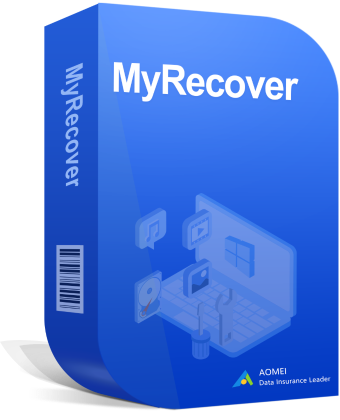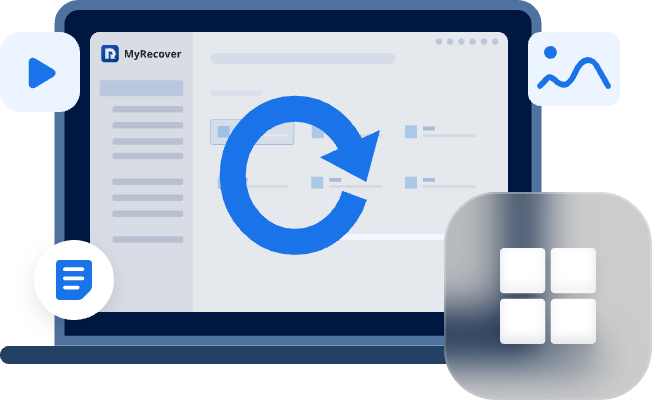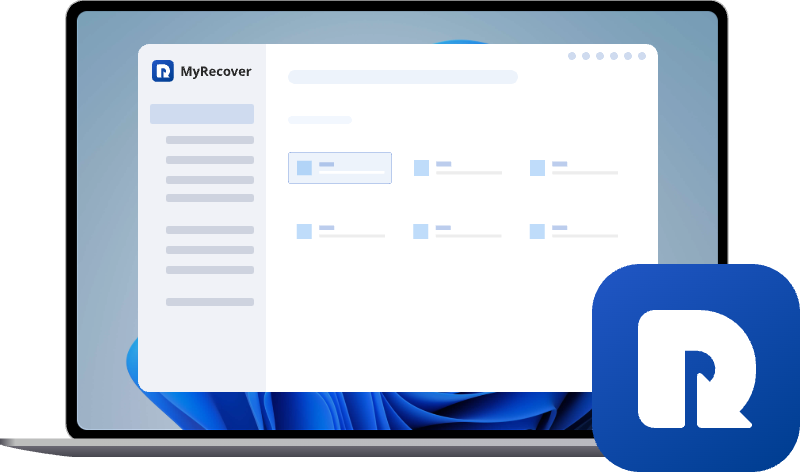PS4 Data Recovery: Easily Recover Save Data from PS4 Hard Drive in Minutes
Recovering save data from a PS4 hard drive is possible, even if files have been lost or deleted. This guide walks you through reliable methods, including using specialized recovery software to retrieving files by connecting your PS4 drive to a PC to maximize your chances of retrieving valuable game saves and other data safely.
Can You Recover Data from a PS4 Hard Drive?
The PlayStation 4 (PS4) is a popular gaming console that offers a rich gaming experience with high-resolution graphics, smooth gameplay, and a vast game library. Whether you’re a hardcore gamer or just someone who likes to enjoy games casually, your PS4 holds a large amount of valuable data from game saves and profiles to downloaded games and settings.
Sometimes, due to hard drive failure, accidental deletion, or system crashes, you may lose this crucial data. This can be frustrating, especially if you’re worried about losing hours of progress or collectible in-game items. The big question many PS4 users ask is: "Can I recover data from a PS4 hard drive?" The answer is "yes". In many cases, you can. Recovery is possible, especially if the hard drive is physically healthy and the data hasn’t been overwritten.
Methods to Recover Save Data from PS4 Hard Drive
Methods range from retrieving files through PS4’s backup and restore functionality, to using specialized data recovery software after removing the hard drive and accessing it on a PC. Check out the following details about each method.
Method 1. Restore PS4 Saved Data Using Cloud Backup
If you’re a PlayStation Plus subscriber or have previously backed up your PS4 saves to the cloud, you can restore them directly from your PS4. Here’s how:
Step 1. From the PS4 home screen, go to "Settings".
Step 2. Select "Application Saved Data Management".
Step 3. Choose "Saved Data in Online Storage".
Step 4. Select "Download to System Storage".
Step 5. Choose the game saves you want to restore and confirm. Wait for the process to complete.
This method lets you quickly retrieve your game saves without needing to connect your PS4 hard drive to a computer or perform a data scan. If you do not have an online cloud backup, proceed to Method 2.
Method 2. Restore PS4 Console Data from External Drive Backup
If you have backed up your PS4 data to a USB drive, you can restore them via PS4 console using the following steps. Please remember this method will erases all data currently saved on it and cannot be undone, even if you cancel the restore process, so make sure you back up any important databefore proceeding.
Step 1. Connect the USB drive that contains your backup into your PS4 console.
Step 2. Go to "Settings" > "System" > "Back Up and Restore".
Step 3. Select "Restore PS4".
Step 4. Click on "Restore" and choose the suitable game data backup you want to restore.
Step 5. Click on "Yes" button to confirm this restore and start the restore process.
Once the restore is complete, your PS4 will restart with the restored data.
Method 3. Restore Save Data from PS4 by Re-downloading
If you’re missing some save data but you previously purchased and downloaded it, you can restore it by re-downloading directly from PlayStation Store.
Step 1. Access the PlayStation store and make sure you signedin to the same PS4 account you used when purchasing the game.
- On your console: Navigate to the PlayStation Store icon on your console's home screen and select it.
- On PlayStation App: Open the app and navigate to the PlayStation Store section.
Step 2. Go to your "Library".
Step 3. Select "Purchased"from the side menu.
Step 4. Find the game you want to re-download.
Step 5. Choose "Download".
Once the game finishes downloading, you can start playing again.
Method 4. Restore Data from PS4 Hard Drive On PC
If you lose game saves on your PS4 due to deletion, corruption, or other issues, you can recover them by connecting your PS4 hard drive to your PC and using MyRecover, a powerful data recovery tool to get them back. MyRecover supports recovery from a wide range of storage devices, including:
- Hard Disk Drives (HDDs) — internal or external
- Solid-state Drives (SSDs) — internal or external
- USB Flash Drives — thumb drives, pen drives
- Memory Cards — SD, microSD, CF cards, and more
- PlayStation 4 and Other Gaming Consoles’ Hard Drives — for retrieving game saves and related data
- Other Storage Media — digital cameras, smartphones’ memory cards, and more
Step 1. Remove your PS4’s hard drive and connect it to your computervia a SATA-to-USB adapter (you can refer to the following video tutorial to remove and reinstall PS4 drive).
Step 2. Download and install MyRecover on your computer.
Step 3. Open MyRecover and select your PS4’s hard drive for scanning.
Step 4. Wait for MyRecover to scan for lost or deleted files. Once the scan is complete, browse all recoverable files and preview them if necessary.
Step 5. Select the game saves you want to restore. Click "Recover"and save them to a safe location.
Step 6. Save the recovered saves back to PS4 drive.
After the recovery is successful, reinstall the hard drive back into your PS4 following the proper procedure. Power on your PS4 and verify that your recovered game saves and data are accessible and intact.
Final Thoughts
Whether you use cloud backup, restore from an external drive, re-download your games, or recover data directly from the PS4 hard drive with specialized software, you can find detailed guide in this guide to retrieve your valuable game saves and data. Choosing the method that suits you best will help you recover your progress and continue enjoying your games without worry.
MyRecover, as a professional Windows recovery tool, also supports recovering game data from Xbox and other game consoles as long as you connect the hard drive to a Windows computer. If you want to use such an amazing software on more than one device, please upgrade to Technician edition.

- 500+ Devices Supported | SSD, HDD, USB Flash Drive, SD Sard, etc.
- 1000+ File Formats Supported | PNG, MP4, MP3, TXT, ZIP, MSG, etc.
- 500+ Data Loss Scenarios | Deletion, Format, System Crash, Virus Attack, etc.


